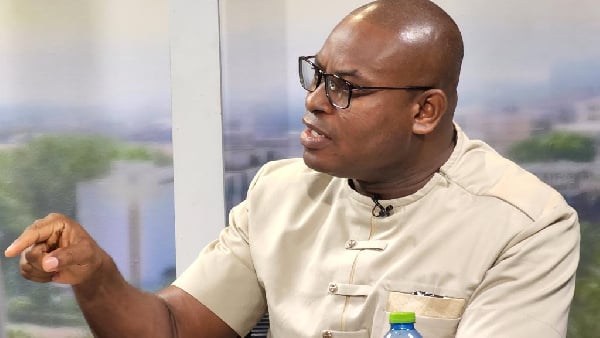The New Patriotic Party (NPP) has voiced strong criticism of Attorney-General Dominic Ayine’s decision to discontinue prosecution in several high-profile corruption cases involving former appointees of the National Democratic Congress (NDC) government. NPP Communications Director, Richard Ahiagbah, expressed deep concern over the implications of these dismissals for justice and accountability, particularly given the significant sums of public funds allegedly misappropriated in these cases. He specifically cited the Saglemi Housing Scandal, the COCOBOD case, and the SSNIT OBS issue as examples where the abrupt halt to legal proceedings raises serious questions about the government’s commitment to combating corruption. Ahiagbah underscored the need for thorough investigations into the missing funds and urged the Attorney-General to prioritize transparency and accountability in handling these matters. He argued that simply dismissing the cases without a clear explanation undermines public trust and erodes the principles of good governance.
Ahiagbah’s critique extended beyond the immediate financial implications of the dismissed cases. He framed the Attorney-General’s actions as part of a broader pattern of behavior by President John Dramani Mahama’s administration, which he characterized as systematically “clearing” NDC members of wrongdoing. This, he argued, diminishes the credibility of the judiciary and weakens the foundations of Ghana’s democracy. Ahiagbah expressed apprehension that such actions could negatively impact Ghana’s standing in global democracy rankings, undermining the progress made in consolidating the Fourth Republic. He warned that the perceived impunity enjoyed by former officials could embolden current and future appointees to engage in corrupt practices, knowing they might escape accountability through similar dismissals.
Ahiagbah’s concerns centered on the potential long-term consequences of what he viewed as a dangerous precedent. He questioned the silence of key institutions such as civil society organizations, the Ghana Bar Association, and the judiciary, describing their lack of response as “deafening” and “dizzying.” He argued that their silence implicitly condones the government’s actions and contributes to a climate of impunity. Ahiagbah further speculated that this “clearing” agenda could extend to the release of convicted NDC members currently serving prison sentences, reinforcing his concerns about the erosion of the rule of law. He directly challenged the “Democracy Hub” and other stakeholders to address what he considered a clear assault on democratic principles.
Ahiagbah’s criticisms highlight the tension between political expediency and the pursuit of justice in corruption cases. The NPP’s perspective emphasizes the potential damage to public trust and the integrity of democratic institutions when high-profile cases are dismissed without a clear and convincing justification. The perceived lack of transparency surrounding these dismissals fuels suspicion and raises questions about whether political considerations have overridden the pursuit of accountability. This situation underscores the importance of robust oversight mechanisms and the active engagement of civil society in holding the government accountable for its actions. The silence of key stakeholders, as highlighted by Ahiagbah, further exacerbates concerns about the potential erosion of democratic norms and the rule of law.
The dismissed cases and the subsequent controversy underscore the ongoing debate about how to effectively combat corruption in Ghana. The NPP’s criticisms raise fundamental questions about the independence of the judiciary and the Attorney-General’s office, particularly when dealing with cases involving politically connected individuals. The concern is that political influence can undermine the impartiality of legal proceedings, leading to selective prosecution and a perception of unequal justice. This perception can erode public trust in the justice system and create an environment where corruption can flourish. Therefore, ensuring the independence and integrity of the legal system is crucial for effectively tackling corruption and upholding the principles of accountability and good governance.
The situation also highlights the crucial role of civil society organizations, the media, and other watchdog groups in holding the government accountable. Ahiagbah’s lament over their silence underscores the need for these actors to be more vocal and proactive in demanding transparency and accountability from public officials. A vibrant and engaged civil society can act as a check on government power and play a vital role in promoting good governance and combating corruption. Their scrutiny and advocacy can help ensure that corruption cases are handled fairly and transparently, regardless of the political affiliations of those involved. A robust and independent media is also essential for exposing corruption and holding those responsible to account. The absence of strong oversight mechanisms can create a breeding ground for corruption and undermine the foundations of a democratic society.


